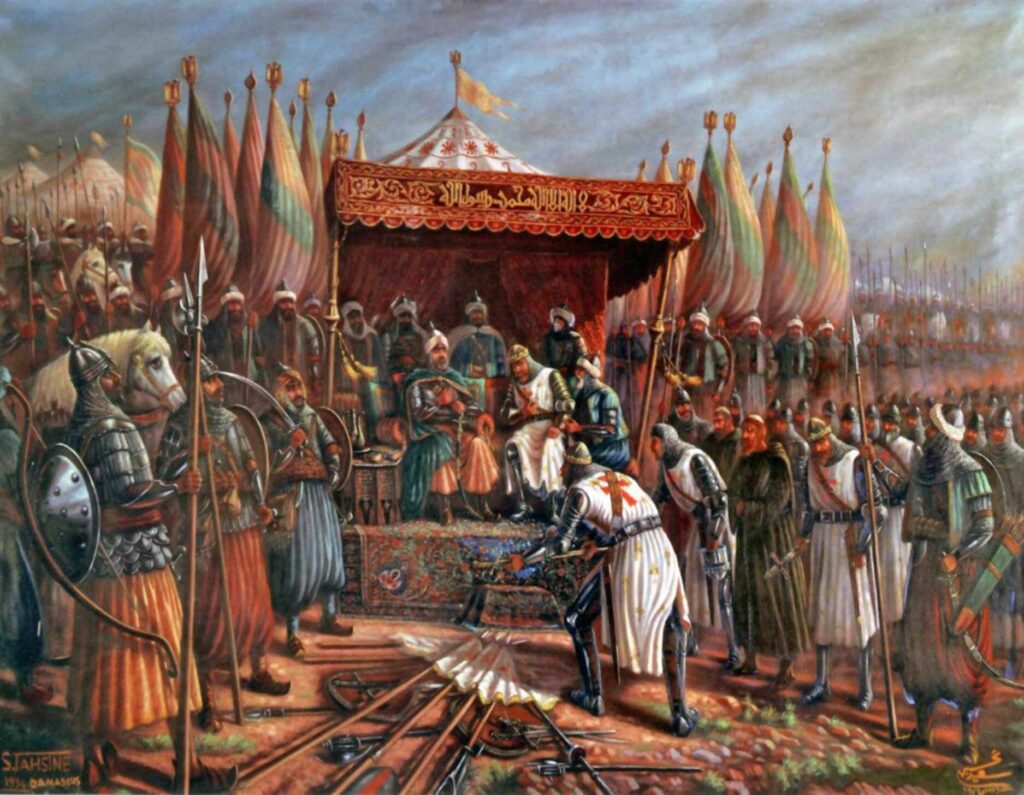Salah ad-Din al-Ayyubi, known as Saladin’s death marked the end of an era, was a legendary figure in Islamic history, renowned for his military prowess and chivalrous conduct. After a life filled with remarkable achievements and victories, Saladin’s eventual passing marked the end of an era. In this article, we explore the circumstances surrounding his death and the enduring legacy he left behind.
Last Days and Illness Saladin:
As Saladin grew older, his health started to decline. The strain of continuous military campaigns, the weight of governing vast territories, and the challenges of maintaining peace took their toll on his physical well-being. It is believed that Saladin suffered from a chronic illness, possibly kidney-related, which exacerbated his condition. Despite his declining health, he remained actively engaged in matters of state and continued to provide guidance to his commanders.
The Final Campaign Saladin:
In the year 1193, Saladin embarked on what would be his last military campaign. He led an expedition into Syria, aiming to quell internal conflicts and maintain the stability of his empire. Despite his weakened state, Saladin displayed resilience and determination, seeking to uphold the principles of justice and unity he had championed throughout his life.
Return to Damascus Saladin
Following the conclusion of his campaign, Saladin returned to Damascus, one of the key cities under his rule. It was there that his health further deteriorated, and it became evident that his time was drawing near. Recognizing the importance of succession and stability, Saladin made provisions for the governance of his territories, ensuring a smooth transition of power.
Passing and Funeral:
Salah ad-Din al-Ayyubi, the great Islamic hero, breathed his last on March 4, 1193, at the age of 55. Upon his death, grief and mourning spread throughout the Islamic world, as people recognized the immense loss they had suffered. Saladin’s body was carried to the Umayyad Mosque in Damascus, where a funeral procession of unprecedented magnitude took place. Thousands gathered to pay their respects, and religious leaders eulogized the great leader, highlighting his contributions to the Muslim ummah and his commitment to the principles of justice and honor.
Legacy and Impact:
Saladin’s death marked the end of an era, but his legacy and impact continued to reverberate through the centuries. His remarkable military achievements, particularly the reconquest of Jerusalem, earned him a place in history as a symbol of Islamic resistance against the Crusaders. Moreover, his chivalrous conduct, respect for religious diversity, and commitment to justice left an indelible mark on the collective memory of humanity.
Saladin’s legacy transcended time and space, shaping subsequent generations’ perception of leadership and inspiring countless individuals. His name became synonymous with qualities such as honor, integrity, and magnanimity. His influence extended to both the Islamic world and the Western world, where he was admired as a worthy adversary by his Christian counterparts.
Conclusion:
Salah ad-Din al-Ayyubi’s death marked the end of a life filled with triumphs and challenges, leaving behind a legacy that continues to inspire people to this day. His commitment to justice, honor, and religious coexistence earned him respect and admiration from both Muslims and Christians. While his physical presence may have departed, Saladin’s spirit lives on through the lessons he taught and the values he embodied.




